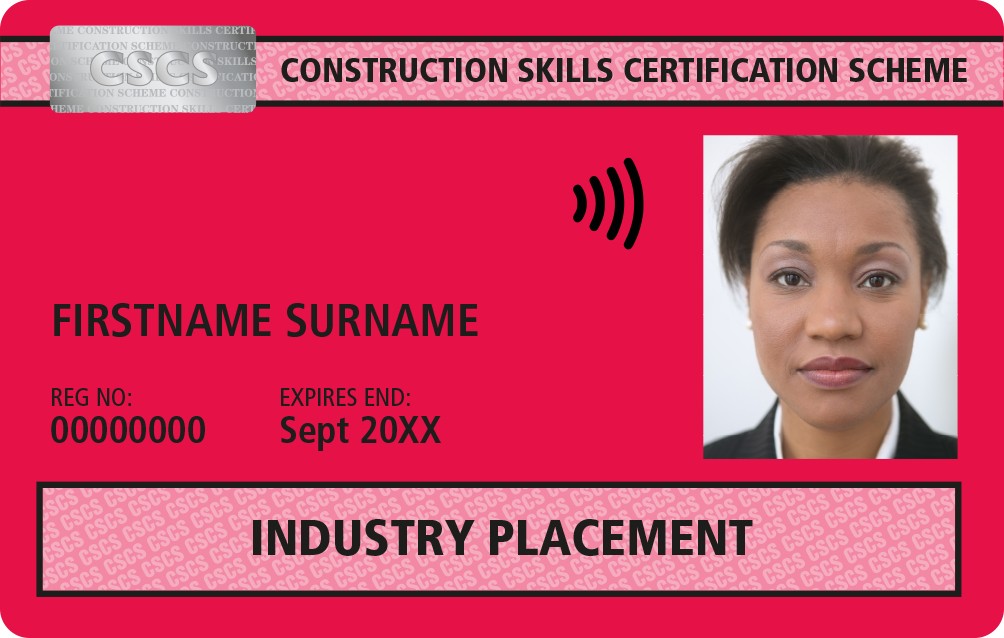Top 5 CITB Test Revision Resources to Help You Pass
Preparing for the CITB Health, Safety & Environment (HS&E) test is crucial for anyone pursuing a construction career in the UK. This test (commonly called the “CITB test”) assesses your knowledge of on-site health and safety and is a prerequisite for obtaining a CSCS card.
With 50 questions to answer in 45 minutes and a high pass mark of 45/50 (90%), it’s clear that thorough revision is essential. The good news is there are excellent CITB test revision resources available to help you succeed.
In this guide, we’ll outline the top 5 revision resources – from official study materials to online tools – tailored for operatives, supervisors, and managers preparing for the CITB HS&E test.
These resources will boost your confidence and knowledge, whether you’re taking the Operatives test, a Specialist test, or the Managers and Professionals test
By leveraging a combination of the official CITB revision book, the CITB mobile app, online mock test websites, video courses or classes, and an effective study schedule, you can cover all aspects of the exam. Let’s explore each of these resources in detail and how to use them for the best results.
Understanding the CITB HS&E Test (Operatives, Supervisors, and Managers)
Before diving into the revision resources, it’s important to understand the CITB HS&E test itself. The CITB test is designed to ensure that construction workers at all levels have a minimum level of health, safety, and environmental awareness.
There are several versions of the test depending on your role:
Operatives Test: For general construction workers (labourers, bricklayers, carpenters, etc.) covering basic health, safety, and environmental topics.
Specialist Tests: For specific trades or roles (e.g. Supervisor, Demolition, Plumbing, Highway Works, etc.), which include additional questions related to those specializations.
Managers and Professionals (MAP) Test: For site managers, supervisors, and professionals, covering a broader range of topics at a management level.
Regardless of the test type, the format is similar: 50 multiple-choice questions in 45 minutes, and you must score at least 45 out of 50 to pass (90%).
Passing the CITB test is required to obtain a CSCS card, which proves your qualifications and training to work on UK construction sites. Failing the test isn’t the end of the road – you can retake it after 24 hours, but proper preparation will save you time and stress.
Why Revision Matters: The CITB test covers a wide range of health and safety topics, from legal regulations to hazard identification. Simply having on-site experience may not guarantee you can answer all questions correctly.
Effective revision ensures you familiarize yourself with the specific questions and knowledge areas that CITB expects you to know. In fact, CITB provides official study materials and recommends that candidates work through all sample questions and consider relevant training courses to improve their chances of success.
With that in mind, let’s look at the top five resources you should use to prepare for your CITB test.
Top 5 Revision Resources for the CITB Test
Below are the five best revision resources to help you study effectively and pass your CITB HS&E test. These resources are tailored for UK candidates and cover everything from official CITB materials to third-party practice tools and study techniques.
1. The Official CITB Revision Book (Q&A Book)
When it comes to CITB test preparation, the first resource you should obtain is the official CITB Health, Safety & Environment revision book. This question-and-answer book is published by CITB and is available for the Operatives & Specialists test (and a separate version for the Managers & Professionals test).
According to CITB, this official publication “contains all of the content that is covered within the test in the form of questions and answers so that you can fully prepare for your test. In other words, every topic and knowledge area that may appear on the exam is covered in this book, making it an indispensable study aid.
Key benefits of the CITB revision book:
Comprehensive Coverage: The book includes all official CITB test questions (and answers) across the relevant topics. Using it allows you to practice the exact kinds of questions you’ll face, from basic safety signs to more complex regulations. If you are taking a specialist or managerial test, ensure you get the correct version of the book that includes those additional sections.
Clear Explanations: For each question, the book provides the correct answer. Many questions are accompanied by explanations or references, helping you understand why that answer is correct. This is crucial for learning from mistakes and remembering safety principles for the real test.
Updated Content: CITB regularly updates the revision material to reflect current legislation, best practices, and any changes in the test itself. You will only be tested on the most up-to-date information that’s in the latest edition of the revision materials. This means it’s important to use the latest edition of the book (check the year or version number) so that your revision is aligned with the current test standards.
The CITB revision book is updated periodically (for example, new editions were released in 2019 and 2022/2023 to include legislative changes), and CITB ensures outdated questions are removed.
Availability: The official revision books can be purchased easily. You can buy them from CITB’s online shop or major book retailers (both in-store and online). The book is relatively affordable (usually around £10-£15) and often available in both hard copy and e-book formats. Some employers or training providers might also have copies you can use. It’s a small investment that can significantly boost your chances of passing.
Tips for using the book effectively:
Go through every section and chapter of the book, and attempt to answer each question without looking at the answer first. Mark any questions you get wrong or find tricky, and revisit them until you consistently get them right.
The book is organized by topics (e.g. Working environment, Hazardous substances, Working at height, etc.), so you can study one topic at a time. This helps in identifying areas where you might need extra revision. Since the CITB test draws questions randomly from all topics, being well-rounded in your knowledge is key.
Many test-takers find it helpful to treat the book like a mock exam – simulate test conditions by timing yourself on a set of 50 questions from the book to see if you can hit the 45/50 score consistently.
Overall, the official CITB revision book is arguably the most important resource for CITB test preparation. It’s official (so you can trust the accuracy), comprehensive, and directly relevant to the exam you’ll take. Make this the foundation of your study plan – and then supplement it with the additional resources below.
2. CITB HS&E Revision Mobile App (Interactive Practice)
In today’s digital age, you can carry your CITB revision everywhere you go using the official CITB HS&E mobile app. CITB has developed mobile apps for both the Operatives & Specialists test and the Managers & Professionals test (available on Android and iOS).
These apps are essentially a digital version of the revision material, with added interactive features to enhance your studying. CITB describes the operatives app as “the only complete revision experience available… containing everything you need to know to book, prepare for – and sit the test, including a realistic test simulation.
Why use the CITB revision app?
All-in-One Revision Tool: The app includes the full question bank (just like the revision book) along with study notes. You can practice all the knowledge questions in a convenient digital format. It’s like having the book on your phone, plus much more.
Realistic Mock Tests: One of the best features is the simulation of the real test. You can take timed mock exams on the app which mimic the actual test interface and time limit. This is great for practicing under exam conditions and building your confidence. After completing a mock test, the app gives you a score breakdown and lets you review each question to see what you got right or wrong.
Smart Revision Features: The app can tailor your practice to focus on areas that need improvement. For example, it has a mode to practice only your weakest topics or concentrate on questions you’ve previously answered incorrectly. It also tracks your progress over time, so you can see improvement (e.g., your scores trending upward as you study).
Voiceovers in 14 Languages: A standout feature for non-native English speakers is that the operatives test app provides voice-overs in 14 different languages, including Polish, Punjabi, Bulgarian, Lithuanian, and others. This means you can listen to questions and answers read aloud in your preferred language, which can aid understanding if you find technical English terms difficult. (Note: The test itself can also be taken with a voiceover language option, so practicing with the app’s multilingual voiceovers is excellent preparation if you plan to use that aid in the exam.)
Convenience and Flexibility: Having the app on your smartphone or tablet allows you to revise on the go – whether you’re on a lunch break, commuting, or at home relaxing. Even short 10-minute practice sessions can be productive. The app lets you dip in and out of different topics easily and bookmark questions for later review.
Additional Utilities: The app is frequently updated to reflect any changes (e.g., new questions added when regulations change), and once you purchase it, updates are usually free. It also includes some useful extras like a search function (to look up specific keywords or topics), a test centre locator (to find the nearest place to take your exam), and the ability to share your practice test scores on social media (if you want to boast to your friends or challenge them!).
Access and cost: The official CITB revision apps are available on the Google Play Store for Android and the Apple App Store for iOS. Search for “CITB HS&E operatives app” or “CITB MAP test app” depending on which exam you’re taking. The app is not free – it costs around £6.99 as a one-time purchase, but consider this a worthwhile investment in your success.
(Tip: Make sure you download the official CITB app by CITB/Imagitech, as there may be some third-party apps or knock-offs. The official one is labeled CITB HS&E and has CITB’s logo.) Once downloaded, you don’t need internet access to use the app day-to-day, which is handy if you want to study in locations without Wi-Fi.
Many candidates find the app extremely useful, especially for self-testing and tracking progress. For example, you might use the book to study a chapter, then use the app to quiz yourself on that topic’s questions. The immediate feedback and ability to retry questions on the app can reinforce learning. Additionally, if English isn’t your first language, listening to the questions in your native language via the app’s voiceover can help clarify their meaning
3. Practice on Mock Test Websites (Free Online Questions)
In addition to official resources, leveraging free online mock test websites is one of the best ways to prepare for the CITB test. These websites offer practice exams that simulate the real CITB HS&E test, usually with a pool of multiple-choice questions and timed quizzes. They are especially useful after you’ve done some studying, as they test your knowledge in exam-like conditions and highlight any weak areas you need to revisit.
Advantages of using mock test websites:
Exam Simulation: Most mock test sites present 50-question tests with a 45-minute timer, just like the real exam. This helps you get used to the pressure of answering questions within the time limit. You’ll develop a sense of pacing (for instance, you have about 54 seconds per question on average) and learn how to manage your time so you’re not rushing at the end.
Large Question Banks: Good revision websites often have a large database of questions. For example, Construction Test (constructiontest.co.uk) offers numerous CITB practice tests and notes that there are “more than 1000 practice questions for Operatives and Specialists” in their database.
This means each time you take a test, you might get a different mix of questions – giving you broader exposure to potential topics. Similarly, the site Builder’s Test provides a full 50-question CITB mock test that mirrors the ones you’ll face in 2025. By repeatedly taking these tests, you can cover hundreds of unique questions.
Instant Feedback and Explanations: Online practice tests typically give you your score immediately and often provide explanations for each question’s answer. For instance, if you answer a question incorrectly, the platform might display the correct answer with a brief explanation or reference.
This is extremely helpful for learning – it’s like a teacher marking your quiz and telling you why you got something wrong. (On Construction Test’s site, when you reveal answers, each question comes with an explanation, e.g. explaining a safety concept or regulation.) By reviewing these explanations, you can deepen your understanding and remember the reasoning for next time.
Identify Weak Areas: Taking mock exams will quickly show you which areas you struggle with. Perhaps you keep missing questions about fire extinguishers, or maybe environmental safety questions trip you up. Noticing these patterns allows you to target your revision. You can go back to the book or app and focus on those topics, or even search the web/YouTube for more info on that subject. Essentially, mock tests act as diagnostics to guide your study plan.
Free and Accessible: Most CITB mock test websites are completely free to use. You can take tests as many times as you like. They are accessible on any device with a web browser. This is a budget-friendly supplement to the official materials – especially useful if you prefer to save on buying multiple resources. Just ensure you use reputable sites that keep their question banks updated to the current CITB test standards (look for mentions of the current year or recent updates on the site). The ones mentioned here are UK-based and focused on CITB/CSCS, so they tend to stay current.
Recommended CITB mock test websites:
ConstructionTest.co.uk – Offers full-length 50-question mock exams for operatives. They update their questions for each year (e.g., CSCS Mock Test 2025 editions). This site allows you to practice with questions and then review answers one by one or at the end. With a huge question pool of around 1000+, you’ll get fresh questions on multiple retakes.
BuildersTest.com – Provides a CITB mock test that is “similar to the ones you’ll face when taking the CITB Health, Safety and Environment Test in 2025”. This indicates their content is aligned with the current exam style and topics. The interface and format are designed to mimic the real test for authenticity.
CSCSMockTest.org / CSCS-Test.com / etc. – There are other sites with names referencing CSCS or CITB mock tests. Many of these have free quizzes. Always double-check that the content is UK-focused (the CITB test is sometimes colloquially called the “CSCS test” since it’s needed for the CSCS card). If a site specifically mentions CITB HS&E test and has recent questions, it’s likely a good resource.
MySafetyTest.com – This site offers free practice questions and even allows you to generate random tests. According to its description, it ensures no two practice tests are the same by randomizing questions from their databasemy. This randomness helps prepare you for the unpredictability of the real exam.
When using these websites, try to simulate exam conditions: sit in a quiet place, set a timer (if the site doesn’t already), and complete the full test without interruptions. Afterward, review every question you got wrong. Make notes or flashcards for those questions or topics, and study them before attempting another mock test.
As you improve, you should see your mock test scores rise. By the time your actual exam date arrives, you’ll ideally be scoring well above the pass mark on these practice tests (e.g., consistently getting 48-50 out of 50). This will give you confidence that you can do the same on the real CITB test.
4. Online Video Courses and Revision Classes
Sometimes self-study needs to be supplemented with guidance from instructors or visual learning. That’s where video-based resources and revision courses come into play. There are two main avenues here: formal training courses (in-person or virtual classes) and informal online videos (e.g. YouTube tutorials, webinars). Utilizing one or both can reinforce your understanding of health and safety topics and keep you engaged.
Formal Revision Courses / Classes:
CITB itself and various training providers offer short courses that cover the content of the HS&E test. In fact, CITB “strongly recommends candidates allow sufficient time to revise” and to consider relevant courses, as this test covers a broad range of topics. One popular course is the CITB Site Safety Plus: Health and Safety Awareness (HSA) one-day course, which is an introduction to on-site safety.
This course is often taken by those going for the Green Labourer CSCS card (it’s a requirement for that card alongside the CITB test) and provides a solid overview of key safety principles. CITB even lists the HSA course as a helpful resource in its revision recommendations.
If you are new to construction health and safety, a course like this can give you a structured learning experience, with a qualified instructor walking you through the material, answering questions, and sharing real-life examples. It covers topics like hazards, safety laws, how to prevent accidents, and more – much of which overlaps with CITB test questions.
Beyond CITB’s own courses, private training companies across the UK offer CITB test preparation classes. These might be half-day or full-day workshops focusing specifically on the HS&E test revision. In such a class, an instructor might go through practice questions with the group, explain difficult concepts (like legislation or technical terms), and give study tips.
The benefit of a class is the ability to ask questions on the spot and learn from others’ questions as well. It can also impose a bit of discipline – if you’ve signed up for a class, you’re going to focus for that period of time on learning. Some companies bundle CITB test booking with a revision session, which could be convenient.
If an in-person class isn’t feasible, there are online courses and webinars as well. Some training providers have live online sessions or even recorded e-learning modules for CITB test prep. For example, you might find an online course that lets you study the CITB curriculum through slides and quizzes, or a live Zoom workshop where an instructor reviews key points.
Always choose a reputable provider (look for CITB accredited centre’s or well-known construction training companies).
(CITB’s official guidance notes that revision materials like books and apps are valuable, and they “recommend taking relevant training courses” as part of your preparation. This endorsement shows that combining self-study with professional training can be beneficial.)
YouTube and Online Video Content:
If you prefer a more flexible or free approach, YouTube is a treasure trove of CITB test revision videos. Many instructors, training companies, or experienced individuals have uploaded content to help candidates prepare. For example, you can find:
Explainer Videos: Covering specific topics from the CITB syllabus (such as manual handling, fire safety, PPE, etc.). These often use visuals or slides to teach the content, which can help if you’re a visual learner.
Mock Test Walkthroughs: Some YouTube videos literally simulate a CITB test, asking questions one by one, then revealing the answers. A narrator might explain each answer as they go. Watching a “mock test walkthrough” is like doing a practice exam but with someone guiding you. One such video titled “CSCS Mock Test for Operatives” goes through essential health and safety questions and provides commentary. This can be a great way to learn because the explanations are verbal and sometimes accompanied by images, making it easier to remember.
Study Tips and Experiences: There are vlogs or interviews where people share how they passed their CITB test, including what resources they used and any tricky questions they recall. Hearing success stories and tips from others can be motivating and may give you new ideas (like certain memory tricks or mnemonic devices they used for remembering sequences, etc.).
Language-specific revision: YouTube also has CITB test preparation videos in other languages (e.g., some creators have made videos in Polish, Romanian, etc., explaining the questions). If English is a challenge, these might supplement the app’s multilingual support by providing explanations in your native language.
When using YouTube, verify the content is up-to-date. Check the video’s date – anything from a few years ago might contain old questions or miss newer ones. Look for videos mentioning the current year or recent CITB test changes. Also, consider the source: an established training company’s channel or a construction career channel is more likely to have accurate info.
Always cross-reference what you learn in videos with the official book/app to ensure consistency.
One advantage of video learning is it can break the monotony of reading text. Watching a 20-minute video can feel easier than reading for 20 minutes, especially after a long day at work. It engages different senses (sight and hearing), which can improve retention for some people. However, don’t passively watch – take notes if you learn something new or pause the video to quiz yourself on a question before they give the answer.
In summary, combining self-study with guided learning can greatly enhance your preparation. If you have the opportunity and budget, attending a short revision course or an online class can clarify tough topics and boost your confidence. At the very least, supplementing your reading with some YouTube tutorial videos can reinforce your knowledge. The goal is to ensure you thoroughly understand the material, not just memorize answers.
The CITB test isn’t about rote learning – it’s about truly grasping health and safety practices so that you can be safe on site. Using these interactive and personal resources will help cement that understanding.
5. Build an Effective Study Schedule (Time Management and Consistency)
Having all the right resources is important, but how you use them over time is what truly drives success. Many people underestimate the value of a structured study plan. Cramming all your revision in one day or studying haphazardly can leave you underprepared. Instead, create an effective study schedule that allows you to cover all topics, practice sufficiently, and avoid last-minute stress.
Here’s how:
Start Early and Spread Out Your Revision: Don’t wait until the night before your test to open the book! Ideally, start studying several weeks before your exam date (the exact time needed depends on how familiar you already are with the material, but giving yourself at least 2-4 weeks of on-and-off study is a good rule).
A college study tips guide notes that true learning takes time and recommends setting aside weeks (or months) rather than days for exam prepnnc.ac.uk. By starting early and revisiting the material multiple times, you move knowledge from short-term memory into long-term memory, which helps you recall information during the test.
Make a Realistic Timetable: Sit down and plan which days and times you will study, and what you will cover in each session. Be realistic about your obligations (work, family time, etc.) and choose study times that you can consistently stick to – for example, 7-8pm on weekdays, or early Saturday mornings.
“We advise making a timetable to revise certain topics at times/days you know you can manage. The trick is not to cram; you’ll just wear yourself down and do worse at the end of the day”. This advice from an academic source holds very true for the CITB test as well. Break your timetable into chunks: you might dedicate one evening to “Safety signs and fire safety”, the next session to “Working at Height regulations”, and so on. Include breaks and days off to rest – don’t burn out.
Use Active Study Techniques: Simply reading the book cover-to-cover isn’t the most effective strategy. Instead, mix activities in your schedule: e.g., one session you do practice questions (active recall), another session you might watch a video or read the explanatory text in the book (passive review), another time you might quiz yourself using flashcards or the app’s practice mode. Active learning (like answering questions or teaching the content to someone else) tends to reinforce knowledge better than just reading notes. Writing down key points or making your own short notes for each topic can also solidify your memory.
Prioritise Weak Areas, but Review Everything: As you take mock tests or go through the question bank, note which topics you struggle with. Your study schedule should allocate extra time to those areas. For example, if you find environmental questions hard, plan an additional session solely on environmental topics. However, still rotate through all topics periodically. A smart approach used by many is spaced repetition – revisit each subject multiple times with gaps in between.
For instance, if you studied “Construction hazard signs” on Monday, revisit that topic briefly on Thursday again to check retention. This spaced review helps move information into long-term memory. Essentially, balance your time to give more attention where needed, without neglecting other areas.
Practice Under Exam Conditions: As your test date approaches, schedule a couple of full-length mock exams (using the app or a website) in your timetable. Sit down without distractions and do the 45-minute test. This not only tests your knowledge but also builds mental stamina. After marking it, spend another scheduled session to review and understand mistakes. Treat those mistakes as lessons – look up the topics in the book again or ask someone knowledgeable to explain.
Maintain Consistency and Health: An effective study schedule isn’t just about what you study, but also about maintaining a routine that keeps you fresh. Try to stick to your plan as much as possible – consistency beats occasional cramming. That said, listen to your body and mind. If you planned to study one evening but find yourself exhausted, it may be better to rest and come back focused the next day, rather than push through ineffectively.
Also, remember basics: get enough sleep, especially the night before the test (fatigue can seriously impair concentration). Stay hydrated and eat properly; these have surprising effects on cognitive function. Think of preparing for the CITB test like training for a sport – you need practice and also good rest and nutrition.
By crafting a study schedule, you essentially ensure that no topic slips through the cracks and that you’ve practiced sufficiently. It turns a daunting amount of material into manageable daily tasks. Moreover, having a plan can reduce anxiety – you know you have time allocated to get everything done. As the London School of Science & Technology points out, “creating a study plan is one of the most efficient approaches to preparing for a test”
It helps you set goals and measure progress. Each time you tick off a study session, you build confidence that you’re another step closer to being fully prepared.
Example Schedule: (for someone with two weeks until exam, studying after work)
Week 1:
Mon – Read Chapters A and B in revision book (Legal responsibilities, Health and welfare) for 1 hour.
Tue – Do 50 practice questions on Chapters A & B using the app.
Wed – Rest day.
Thu – Read Chapters C and D (Safety topics, High-risk activities).
Fri – Flashcards/notes review on chapters A-D key facts for 30 min.
Sat – Full-length mock test (50 Qs).
Sun – Review mock test errors, re-read those sections.
Week 2:
Mon – Focus on specialist topics (if applicable) or weaker areas identified (e.g., Environmental, Manual handling) using book and app (1 hour).
Tue – Watch a YouTube video on “Top 10 CITB test questions explained” (30 min) and revisit any confusing questions in book (30 min).
Wed – Rest or light review (skim notes).
Thu – Final full mock test on app or web. Score 47/50 – review the 3 wrong answers.
Fri – Briefly re-check notes on those wrong topics. Pack documents needed for test day. Get a good night’s sleep.
Test Day: Arrive at test center early, feeling prepared and confident!
Everyone’s plan will look different, but the key is to have one. By following a structured and active study schedule, you’ll maximize the benefit of all the revision resources you have and walk into the exam knowing you’ve done everything you could to prepare.
Summary & Next Steps
Passing the CITB test is a significant milestone toward obtaining your CSCS card and working safely on construction sites. By utilizing the top 5 revision resources outlined above, you’ll put yourself in the best position to succeed on exam day. Let’s recap these resources:
Official CITB Revision Book: Your go-to reference for all possible questions – make sure to read it thoroughly and practice every question.
CITB HS&E Revision App: A handy tool for interactive learning, mock exams, and multi-language support on the move.
Online Mock Test Websites: Free resources to test your knowledge with realistic exam simulations and get instant feedback.
Video Courses & Classes: Structured learning through courses or informative YouTube videos to deepen understanding and get expert tips.
Effective Study Schedule: A well-planned timetable to cover all topics, avoid cramming, and keep your preparation on track.
Each resource complements the others. For example, use the book to learn the content, the app and websites to practice, videos to clarify doubts, and your study plan to tie it all together. By combining these methods, you’ll cover both the breadth and depth of the material and build confidence in answering any question that comes your way.
Finally, as you wrap up your revision and feel ready, it’s time to book your CITB test and take the exam. Remember, preparation is only half the journey – you also need to take action and get certified. When you’re consistently scoring well in mock tests and have reviewed all sections of the syllabus, go ahead and schedule your exam at a convenient test center.
Ready to take the next step?
Don’t delay in booking your test once you feel prepared. At CITB Test Centre, we make the test booking process simple and accessible – there’s a free online booking form available in various languages, covering every exam at UK CITB centre’s.
You can book your CITB HS&E test online with our secure portal and choose a test date that suits you. Completing this step brings you closer to obtaining your CSCS card and advancing your construction career.
We hope these revision tips and resources help you ace your CITB test on the first try. Good luck with your exam! Stay calm, stay focused, and trust the preparation you’ve done. With diligent study and the right resources, you’ll soon be celebrating a passing score and moving on to the next chapter of your professional journey.
Do you have any other revision experiences or resources that worked for you? Feel free to share your thoughts or questions in the comments below.
If you found this guide helpful, share it with fellow colleagues or friends who are also preparing for their CITB test – they’ll thank you for the tips. And once you pass, don’t forget to come back and let us know!
Now, take that final step: book your test, put your knowledge to the exam, and earn your CITB certification. You’ve got this!
How to book your CITB test today
1. Complete booking form
Free online booking form available in various languages, covering every exam at UK CITB centres, with secure payment processing through our dedicated portal.
2. Get Your appointment
We will compare your preferred dates with our available appointments to find the best match for you. If you cannot attend on the scheduled day, rescheduling is free
3. Attend the Exam
Attend your selected centre at your scheduled date and time to complete your CITB exam. Once finished, you will receive guidance on applying for your CSCS card.
Types of CSCS Cards
What card do you need?
Not sure which card you need? Most often, it’s the green general operative card. However, your job, trade, or qualifications might require a different one. If you already know your card, book your test now; if not, choose one below for details.
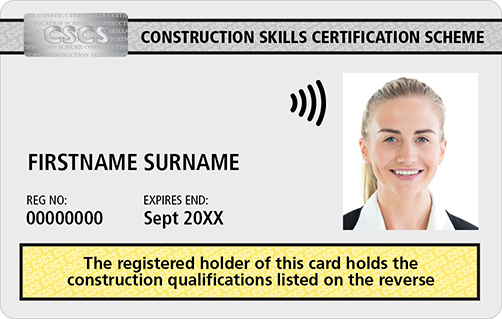
Academically Qualified Person
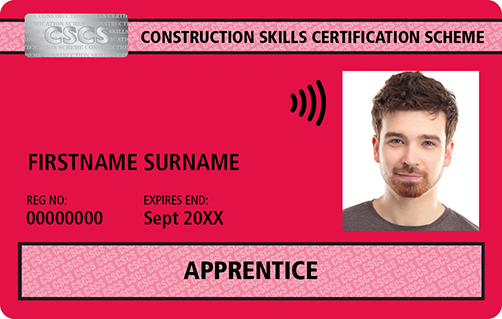
Apprentice
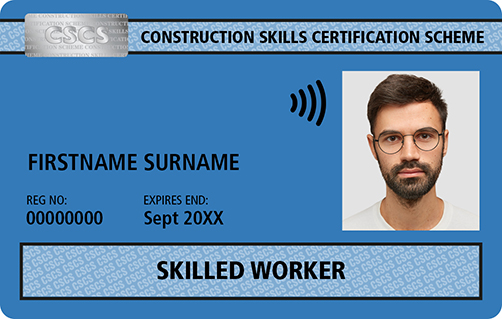
Blue Skilled Worker
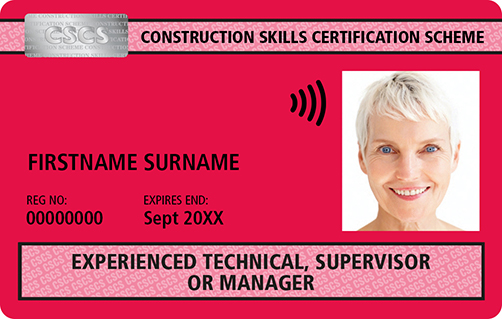
Experienced Technical, Supervisor or Manager
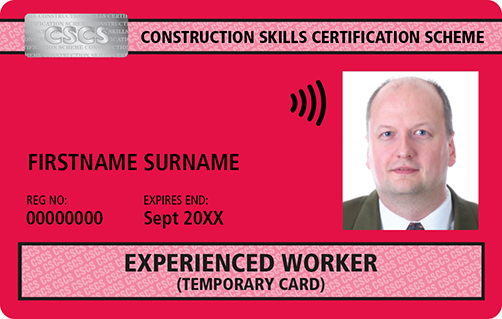
Experienced Worker
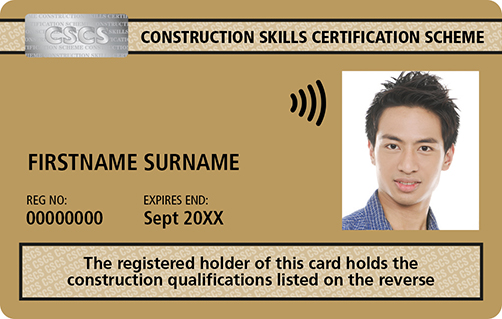
Gold Skilled Worker
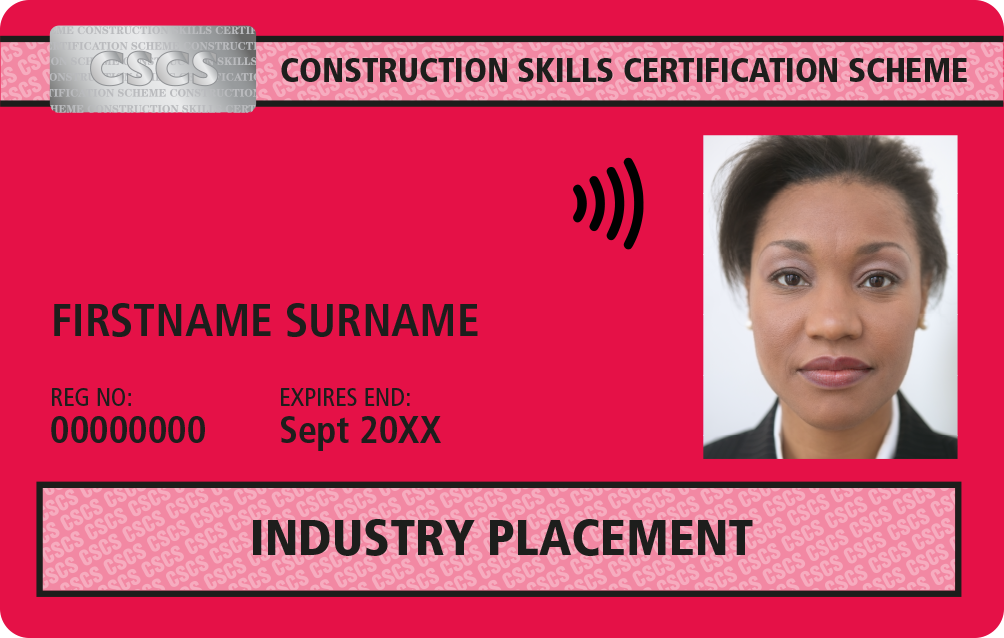
Industry Placement
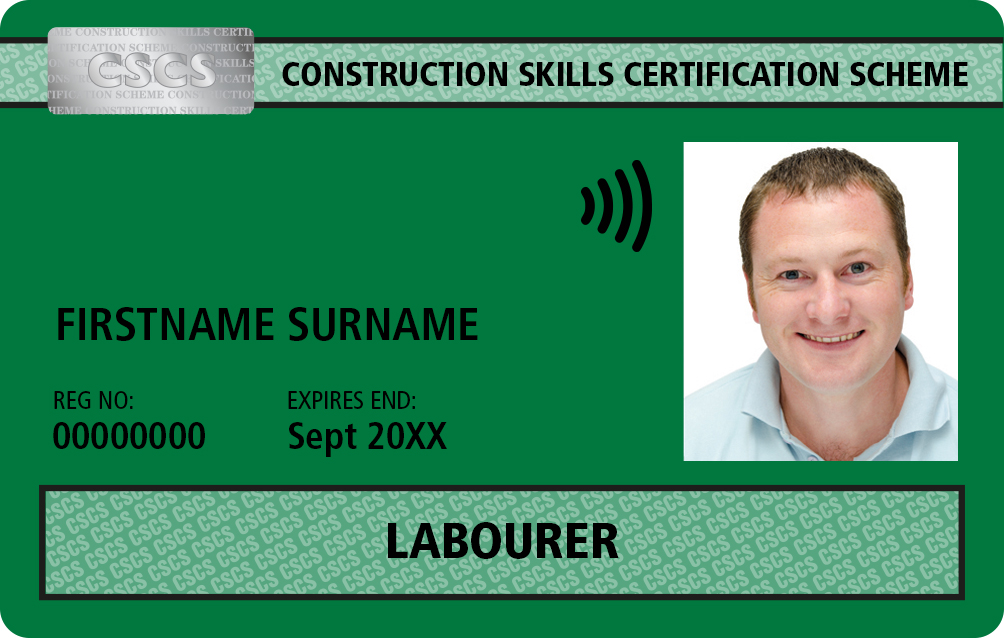
Labourer
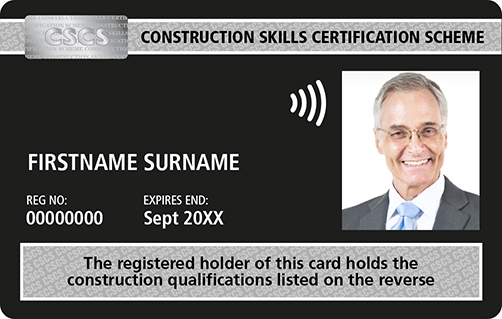
Manager
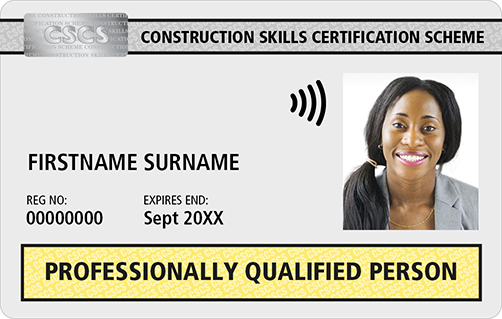
Professionally Qualified Person
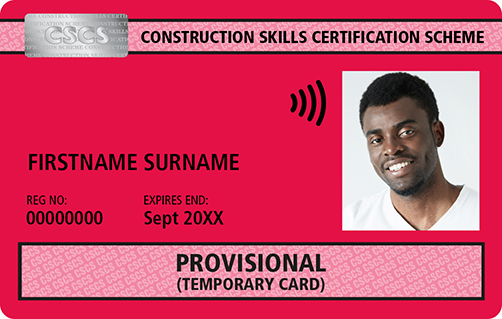
Provisional (temporary only)
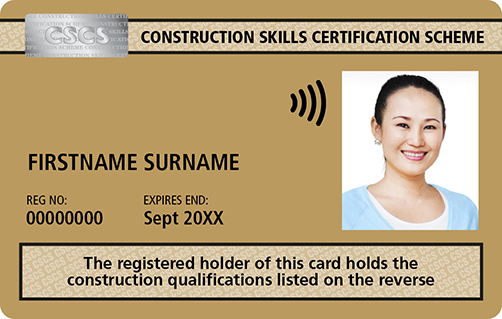
Supervisory
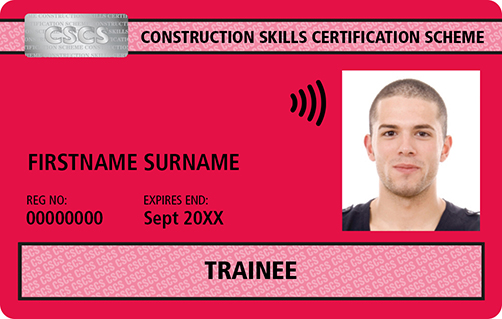
Trainee
